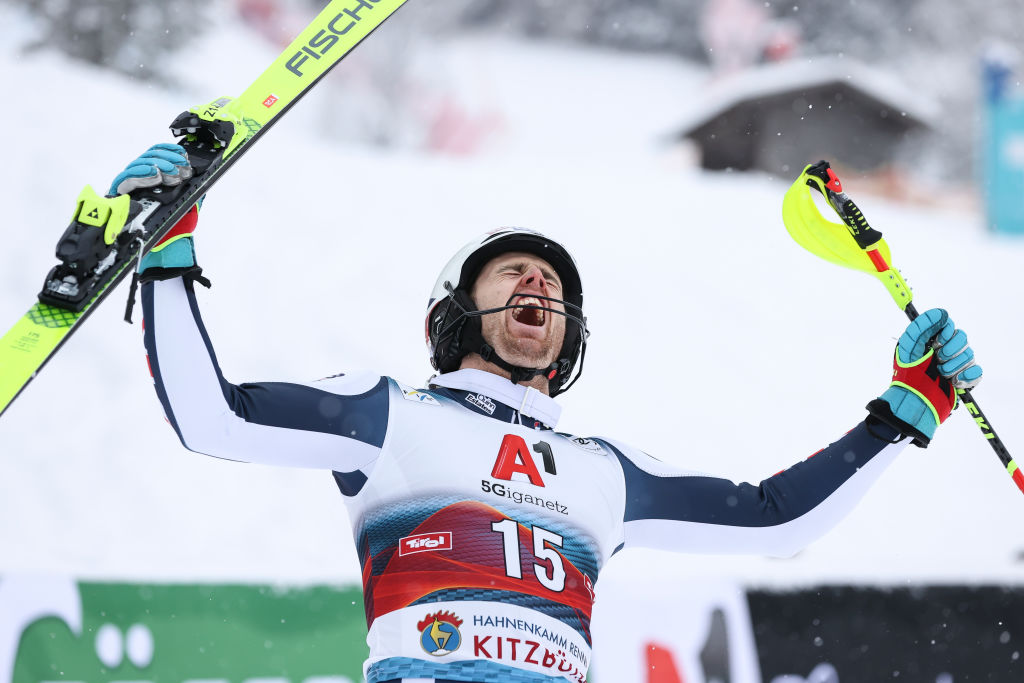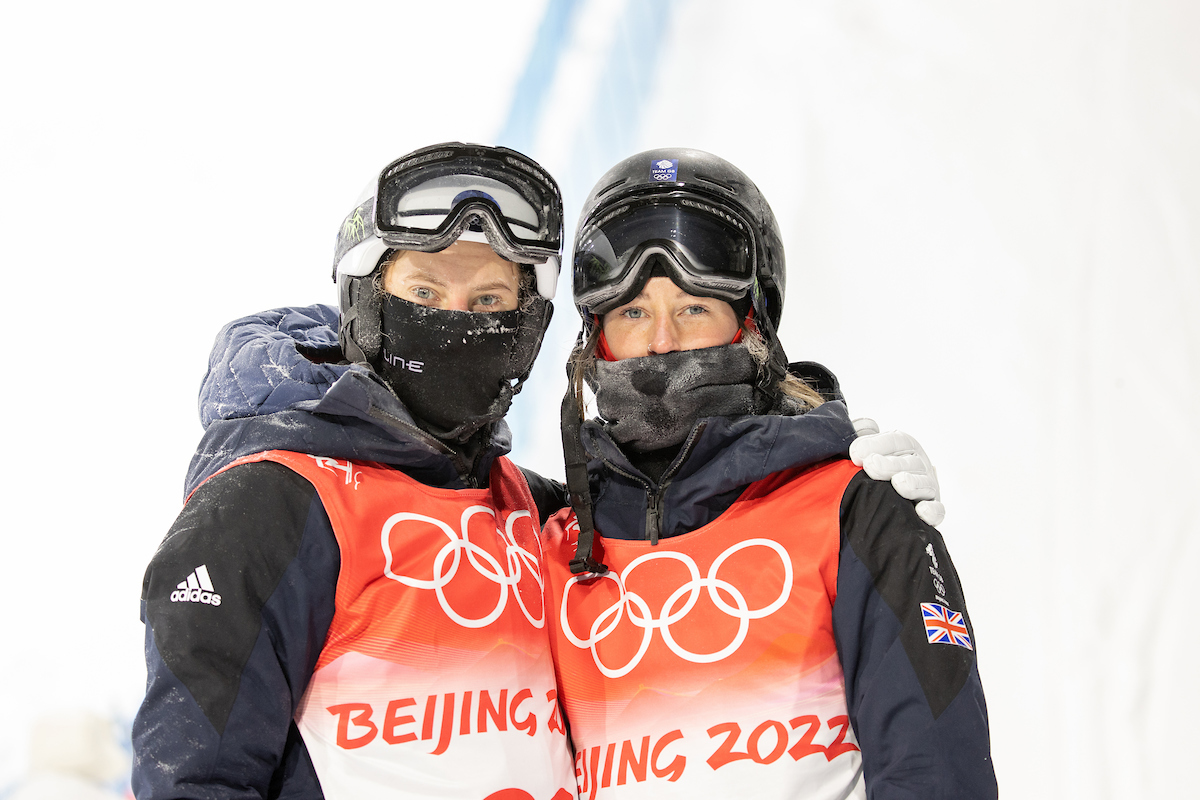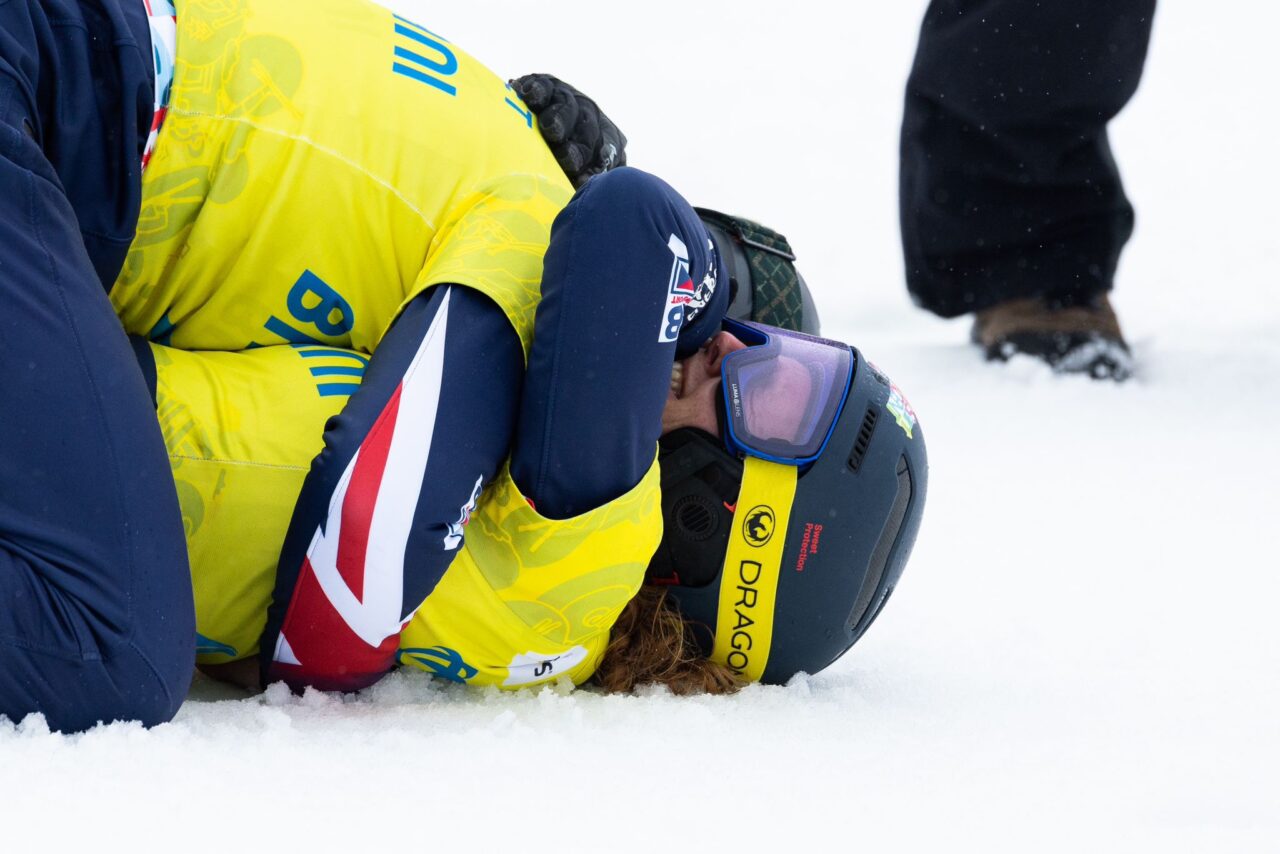Longstanding member of snowsport community passed away last week
Everyone at GB Snowsport is deeply saddened to hear the news of Claire Penell’s passing last week.
Claire was a much loved member of the British snowsport community, a member of Snowsport England’s Senior Leadership team, and a highly regarded colleague, supporter, and advocate for British skiing and snowboarding.
Many within the GB Snowsport family knew Claire for many years and her loss will be greatly felt across our community.
Everyone at GB Snowsport’s thoughts are with Claire’s family, friends, and colleagues at this difficult moment.
Our commitment to supporting young snowsport athletes to compete clean
UK Anti-Doping’s Clean Sport Week campaign focuses this year on the importance of protecting and empowering young athletes to compete clean at every stage of their career.
For GB Snowsport, our commitment to anti-doping and clean sport principles is absolute. We are proud in our belief that all athletes have the right to compete in sport knowing that they, and their competitors, are clean and competing fairly and on a level playing field. We also know that the integrity of our sport stands and falls on a shared dedication to clean sport.
In order to prepare and protect athletes at every stage of their career to safeguard themselves and their sport on the world stage, we are proud to invest significant amounts of time and expertise in delivering anti-doping training and education activities to athletes and support staff across all of our disciplines and squads. Ensuring young athletes, in particular, are aware of their obligations and responsibilities in competing clean isn’t just a good investment in our teams; it’s an important commitment to a generation of athletes who will shape the sport for years to come.
In a year in which anti-doping has continued to make headlines across various sports, we and our athletes and support staff recognise that proactively managing and commiting to clean sport is vital to our sport, our team, and to the futures of every athlete representing Britain on the world stage.
With less than a year to go until the Milan-Cortina Olympic and Paralympic Winter Games, we are determined to continue supporting the nation’s skiers and snowboarders to compete clean and to do so with pride and determination, not just for now, but for all future generations of snowsport athletes.
Find out more about UK Anti-Doping’s Clean Sport Week 2025 campaign here: https://www.ukad.org.uk/clean-sport-week
We’ve teamed up with the award-winning podcast to share athlete stories ahead of Milan-Cortina 26
GB Snowsport has joined forces with award-winning podcast producers, Anything But Footy, to deliver a special season of content dedicated to telling the stories of GBS athletes aiming to qualify for the Milan-Cortina Olympic and Paralympic Winter Games.
Across five episodes, presenters John Cushing and Michael Weadcock speak to Nina Sparks (Para Snowboard), Joe Davies (Cross-Country), Liam Richards (Freeski Halfpipe), Ollie Hill (Para Snowboard), Maisie Hill (Snowboard Park & PIpe), Charlotte Bankes, Huw Nightingale (both Snowboard Cross), Txema Mazet-Brown (Snowboard Park & Pipe), and Cali Carr (Moguls) to understand their sport, their stories, and their ambitions with less than a year to go until the Milan-Cortina Olympic and Paralympic Winter Games.
The first three episodes are available now on Apple Podcasts, Spotify, and direct from Anything But Footy, with episode four launching on Monday 21 April, followed by a special final episode featuring GBS Head Coach Pat Sharples and Chief Executive Vicky Gosling reflecting on the 2024/25 season, and looking ahead to next season’s Olympic and Paralympic Winter Games.
Episode 1: New Names, First Games? Featuring Joe Davies, Liam Richards, Nina Sparks
Episode 2: Getting Back on the Slopes. Featuring Ollie Hill, Maisie Hill
Episode 3: Teaming Up. Featuring Charlotte Bankes, Huw Nightingale
GB Snowsport team joined by Royal Patron HRH The Duke of Edinburgh to celebrate historic 2024-25 season
The record-breaking achievements of GB Snowsport athletes across the 2024/25 season were celebrated alongside HRH The Duke of Edinburgh, team sponsors, and guests of the Financial Times at post-season reception hosted by Fortnum & Mason last week.
Freeski Halfpipe World Champion Zoe Atkin, Slalom World Cup skier Billy Major, and Para Alpine World Cup skier Menna Fitzpatrick spoke at the event to reflect on another historic season for British skiers and snowboarders, which delivered the most Olympic discipline podiums in a single season by a British snowsport team, alongside World Championships medals in Freeski Halfpipe, Snowboard Cross, and Telemark, and Crystal Globes for Zoe Atkin, Mia Brookes, and Jaz Taylor.
The reception, hosted at Fortnum & Mason’s 3’6 Bar, saw sponsors and supporters of GB Snowsport celebrate the team’s achievements, while The Duke of Edinburgh paid tribute to the successes and hard work of GB Snowsport’s athletes, coaches, and staff, while calling on attendees to show their support to the team in the build-up to the Olympic and Paralympic Winter Games in Milan-Cortina next year.
The event was convened to mark the end of the first year of the partnership between GB Snowsport and the Financial Times, and comes on the back of a season which saw British athletes deliver an incredible 46 podiums at the highest levels of international snowsport.
GB Snowsport confirm appointment of Helen Oldfield as Independent Non-Executive Director
We are pleased to confirm the appointment of Helen Oldfield to the GB Snowsport board with immediate effect.
Helen’s appointment will see the board benefit from her more than thirty years’ experience across the law and financial services industries from businesses including Barclays, the Bank of England, and currently BNY where she serves as Managing Director, EMEA General Counsel and Deputy General Counsel.
A qualified Solicitor and a Chartered Company Secretary, Helen will bring to GB Snowsport extensive experiences across complex governance and control architectures, regulatory expertise, legal risk management, and multi-national leadership and management, as well as a keen passion for sport and lifelong learning.
Commenting on her appointment, Helen said:
“Enabling others to experience the joy of snowsport and the thrill of competing at the highest levels is something that I am excited to be part of. I am looking forward to supporting the work of GB Snowsport in developing elite performance pathways. Thank you to the board and the executive leadership team of GB Snowsport for their warm welcome.”
Jason Cobbold, Chair of GB Snowsport, said:
“We are delighted to welcome Helen to the board of GB Snowsport. The Nominations Committee was unanimous in recommending Helen’s appointment, and the skills and expertise she will bring to the board will be of enormous value as we move into perhaps the most important season in recent British snowsport history.
“I and the board look forward to working with Helen in the coming months and years.”
Helen joins the board on an initial four-year term.
UK viewers can enjoy all the action live from St. Moritz/Engadin
Snowsport fans in the UK will have the opportunity to catch all the action from the St. Moritz/Engadin Freestyle World Championships, with Discovery+ and the BBC both providing extensive coverage of the competitions live and on demand.
Featuring Britain’s biggest ever Freestyle World Championships contingent and a host of the best Freestyle athletes in the world, the Championships are underway now, with Kirsty Muir taking Britain’s first Finals qualification spot in the Women’s Freeski Slopestyle.
Discovery+
Discovery+ will be providing their usual comprehensive coverage of the Championships, with competitions from all disciplines available to view via Discovery+ channels for subscribers. Find out more here.
BBC Sport
BBC Sport will be covering all of the following events via iPlayer/BBC Sport website:
- Freeski Slopestyle – Women’s Finals
- Ski Cross – Finals
- Freeski Slopestyle – Men’s Finals
- Snowboard Parallel Slalom – Finals
- Snowboard Slopestyle – Women’s Finals
- Ski Cross – Team Finals
- Snowboard Slopestyle – Men’s Finals
- Snowboard Parallel – Team Finals
- Snowboard Cross – Finals
- Snowboard Big Air – Finals
- Snowboard Halfpipe – Women’s Finals
- Snowboard Cross – Team Finals
- Snowboard Halfpipe – Men’s Finals
- Freeski Big Air – Finals
- Freeski Halfpipe – Women’s Finals
- Freeski Halfpipe – Men’s Finals
- Aerials – Finals
Statement from GB Snowsport
Everyone at GB Snowsport is deeply saddened to hear confirmation that Raph Rinaldi, a much-loved member of our physiotherapy team, has been declared dead having been missing since 2022.
Raph was an integral part of our Paralympic team for a number of years, and was well loved and deeply admired by many of our athletes, coaches, staff, and supporters. His contribution to the team was enormous, and his love and passion for sport was clear and deeply held. Everyone connected with GB Snowsport who knew Raph will have fond memories of his time with us, and his absence is a huge loss for our sport and the wider sporting community.
All of our thoughts are with Raph’s family and friends at this time.
zak Carrick-Smith and Sophie Forth named as Team GB Flag Carriers in Bakuriani
Zak Carrick-Smith (Alpine) and Sophie Forth (Cross-Country) were named yesterday as Team GB Flag Carriers for the Opening Ceremony of the European Youth Olympic Festival in Bakuriani.
Having both represented Team GB previously at least year’s Youth Olympic Winter Games in Gangwon, Zak and Sophie were nominated for the role of Flag Carriers as outstanding ambassadors for their disciplines.
EYOF’s competition events get underway today, with British snowsport athletes set to compete across Alpine, Cross-Country, Freeski, and Freestyle Snowboard events .
Vicky Gosling, GB Snowsport Chief Executive, reflects on a year to go to Milan-Cortina
As the clock ticks over today to mark one year until the opening of the Milan-Cortina Olympic Winter Games, it’s inevitable that the world’s eyes begin to turn towards Italy and everything that a Winter Olympics brings with it.
For so many of us that work, compete, or watch sport, the Olympic Games are foundational in our views of what makes sport special. We all have iconic moments that we remember, athletes forever frozen in their moments of glory, a lodestone that reminds us of why we believe in sport’s power to change lives.
I’ve had the good fortune to work in sport for more than a decade now, initially as part of my military career, and latterly in the British high-performance system. In that time, I’ve seen the very best of sport, and made the sort of memories that last a lifetime.
People always assume that it’s medal moments that live longest in the memory. And, of course, they’re special. Dave Ryding winning the Kitzbuehel Slalom World Cup in 2022. Mia Brookes becoming snowboarding’s youngest ever World Champion in 2023. Charlotte Bankes and Huw Nightingale taking the Team Snowboard Cross World Championship title in the same year. Jaz Taylor taking the overall Telemark Crystal Globe last season. Zoe Atkin’s Halfpipe World Cup win in Aspen last weekend.

But for me, the memories that really stick in my mind are the ones that show that the destination might not be a medal – it might be the journey itself. Quiet moments of gratitude between an athlete and their coach after the heat of competition. The determination in an athlete who falls and gets up again, to finish, to prove to themselves they can. The athlete who returns from injury stronger, or more resilient, or just with the determination to prove they can. The physio watching with pride as an athlete takes their first step back into competition after the slog of rehabilitation. The parent seeing the belief they had in their child confirmed as they reach their potential on the international stage. The behind-the-scenes administrator receiving a word of thanks from the coaches and athletes they work so hard to support. The young fan whose eyes light up as they receive a race bib from the athlete they idolise.
And that’s where my eyes turn as we embark on that 12-month countdown to Milan-Cortina.

Are we mission-focused? Of course. We set out to win and to prove that British athletes can be among the best to take to the snow at an Olympic Winter Games. But we’re also not going to let that ambition cloud our vision. Yes, we want to win, but we want to win at every step of the journey. We want every moment of each of our athletes’ progress to contain all the little victories that make sport matter. We want to show the world that we’re in the game because we love it. And yes, along the way we want to show that we can be the very best, but we want to take the country on that path with us.
So yes, there’s a year to go, and that’s significant. But it’s significant not just because we’re nearing a destination, but also because we’ve got such a rich and rewarding journey ahead of us.
Do I hope we’ll see you – all of you – in Milan-Cortina? Absolutely. But I hope we’ll see you along the way, too, because while we hope to make memories in Italy next year, I can promise you there’ll be plenty more to be made along the way.
